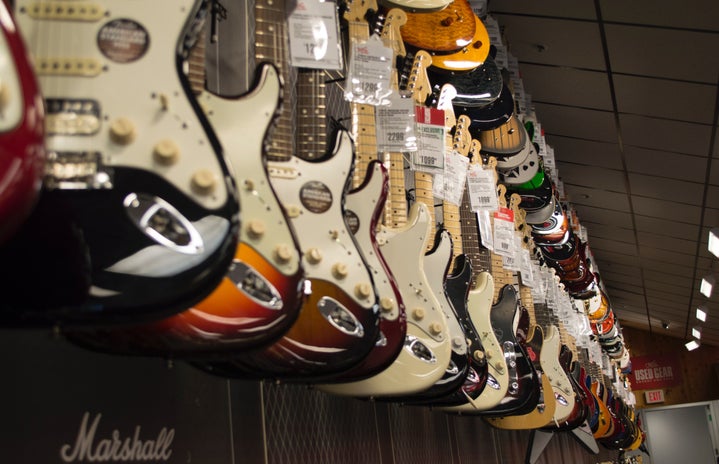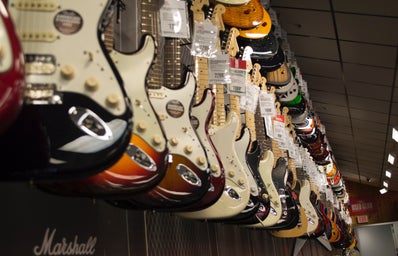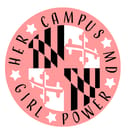The Harlem Renaissance- an explosion of intellectual, social and artistic developments in the African-American community which left a permanent impression on mainstream American culture. In collaboration with the National Jazz Museum in Harlem, Mwenso & The Shakes brought this movement to life with their Harlem 100 Concert at The Clarice Smith Performing Arts Center on the evening of October 17th.
Jane Hirshberg, the Clarice’s Assistant Director of Campus and Community Engagement, first encountered the tap talents of Michela Marino Lerman at Smalls Jazz Club in Greenwich Village, New York City. Further research leads her to Mwenso & The Shakes- a self-proclaimed “band of immigrants” whose distinctive take on jazz music makes them the perfect ensemble to embody the electric music scene of 1920s Harlem.
From the very beginning of the show, the audience was transported to the heyday of jazz icons such as Count Basie, Duke Ellington, and Lena Horne. Over the course of the evening, discussions of the contributions made and obstacles faced by influential artists of the Harlem Renaissance were interspersed with dazzling musical tributes.
Photo courtesy of Blue Note Jazz Festival
Vocalist Brianna Thomas effortlessly transitions between silky smooth riffs and brassy belts in her flirty rendition of Mildred Bailey’s “Squeeze Me.” Lerman’s breakneck tap solo honors Jeni Le Gon and Bill “Bojangles” Robinson. Ruben Fox and Julian Lee are masterfully in sync for their improvisational tenor sax feature on Duke Ellington’s “Echoes Of Harlem/Mood Indigo.” Cape Town, South Africa native Vuyo Sotashe’s lilting voice lends itself beautifully to Marian Anderson’s “Deep River.” French-born pianist Mathis Picard demonstrates a “cutting contest” (a musical battle format popularized by Willie “The Lion” Smith), and Stride (a Harlem piano style in which the right-hand plays the bass chords, while the left plays a syncopated melody line).
Bandleader Micheal Mwenso, who has performed alongside the likes of James Brown and Wynton Marsalis, delivered an upbeat performance of “It Ain’t Necessarily So” from folk opera “Porgy and Bess.” The concert takes a dismal turn with Thomas’ heart-wrenching rendering of Ethel Waters’ “Suppertime”, written from the perspective of a lynched man’s wife- but concludes cheerfully when the band reconvenes to play Fats Waller’s “Ain’t Misbehavin’.”
Although the production is without a doubt infused with the individual musical stylings of Mwenso & The Shakes members, Lerman harkens back to her jazz “ancestors” for inspiration.
“Having the privilege and honor to reinterpret their gifts through our gifts is a very important and magical experience that I think we all kind of dedicated our lives to,” she said.
Bandleader Mwenso added that “part of staying vibrant is realizing that these artists…were always innovating; they were always combining different sounds from different places and different cultures.”
Photo Courtesy of Dizzy’s Club NYC
The development of jazz music is best understood within the context of race relations during the early 20th century. According to JAZZed Magazine, many hallmark features of jazz music including polyrhythm, call & response, improvisation, and pitch bending are direct descendants of the African instrumental and vocal traditions brought to America with enslaved people and consolidated with European elements.
“Anything you know that was created by the Afro-American… it is even more pertinent that you tell the world about it because of the mystery that is involved in what they created and the history behind it that was suppressed,” Mwenso said.
According to Thomas, “That was the beginning of this country… that is how this country was built, and so this music is what America sounds like.”
Mwenso & the Shakes take pride in the diverse backgrounds of their fellow bandmates, believing their wide range of experiences to be an asset not only in their composing process but also in their ability to connect with the genre’s original purpose.
“The artist is the voice of the people… definitely not the politician,” Jamaican bassist Russell Hall explained. “All of us being immigrants that come from politically tumultuous countries, I think the thing that helps people to get past the next hardship is the songs and the art that’s being produced wherever they’re from.”
Thomas too is particularly intrigued by jazz music as an agent of social change.
“You listen to jazz sometimes and you can hear a struggle in it… It’s not a lost struggle; jazz is a way of reaching for freedom,” she said. “I think it’s a song of comfort as well- it’s a community song… people tell each other’s stories through this, people share each other’s struggles and triumphs through it. People tell the truth through it and if that happens to be a protest, it’s a protest.”
In such a divisive era as this one, it is all the more important to reflect on the underappreciated cultural groups that made America what it is today. Creative freedom depends on creators’ willingness to go against the grain, to use their own voices, and to uplift the voices of others that deserve to be heard. You can listen to Mwenso & the Shakes’ debut album, “Emergence (The Process of Coming Into Being)” here.
Photo courtesy of The Clarice Smith Performing Arts Center



